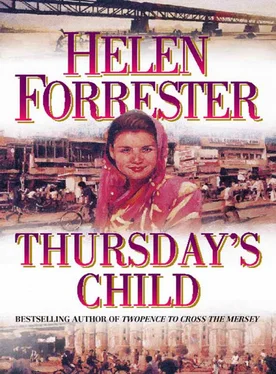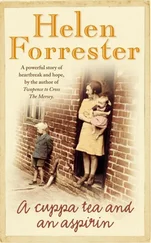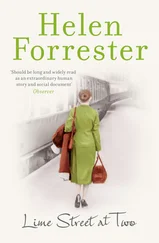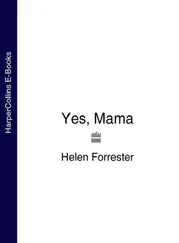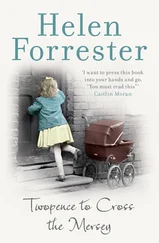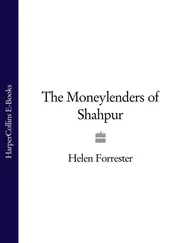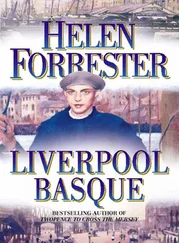‘I hope I do not telephone too early. We Indians rise rather early.’
‘No, I was already up.’
‘Then we will meet at ten o’clock.’
It seemed unkind to disappoint him, so I said that I would be ready and would bring some sandwiches for lunch.
The happiness of his response when I said this could hardly be construed as enthusiasm for sandwiches, so I was glad I had not refused to go.
Ajit had not been at the club the night before. He was working very hard, trying to cram in as much experience and study as he could before going home. He had just finished an arduous round of visits to the factories of electrical instrument makers, and had determined to make this Sunday a holiday.
He met me at the corner of the road in which my home stood. I was early and shivering in the north wind which whined through the leafless trees. The sun peeped only intermittently through the clouds, and the deserted streets looked dismal. I turned up the collar of my leather windjammer.
Ajit was apologetic about my having to wait for him. He glanced at my face, which I knew looked drawn in spite of careful make-up.
‘Are you well?’ he asked. ‘We need not go if you do not wish it.’
I assured him, with a brisk smile, that I was quite well. He looked doubting, but the bus came and we boarded it.
The sea was a heaving mass of grey, except where far out the waves were hitting a sandbank and breaking into white spray. As we started along the top of the sea wall, only the slapping of the water against the base of it and the cries of gulls broke the silence. We walked steadily, the wind behind us, and gradually my body warmed with the exercise and the fresh air cleared my head.
In the coarse grass covering the sand at the back of the wall, I saw a rabbit peeping up at us and, laughingly, I pointed it out to Ajit.
He had been looking at me from time to time rather anxiously, but he was apparently satisfied when I laughed, because he laughed too. He told me about the squirrels that lived in the neem trees in the garden of his home in Delhi, and of the lizards that always made a home in the window curtains, no matter how frequently they were shaken out. I shivered at the idea of lizards in the house, but he said they were harmless creatures with yellow bodies and sparkling eyes, and they kept the room free from insects. He told me also about the mongoose that lived in the inner courtyard to guard it from snakes.
‘Snakes are sacred, are they not?’
‘Village people sometimes worship cobras as a manifestation of God – but it is the cow which is really sacred – she gives us milk, clarified butter and curd, and in return she must be fed and protected and on no account slaughtered.
‘It would be merciful to kill some of the cows which are sick and old,’ he added ruefully.
‘I read once that one of the Hindu Gods is a destroyer. Is that true?’
‘Yes, Shiva destroys – without thought or mercy,’ he said, bitterness in his voice.
I thought of the famines, the floods, the earthquakes, the riots of India. It was not surprising that they believed in a God who destroyed.
‘Well, who creates?’
‘Brahma creates. From the holocaust which Shiva makes, he recreates. So life is born anew and nothing is wasted.’
Nothing is wasted. From the devastation which emotions leave, does Brahma spin again the threads of life? I wondered. It was a new idea to me – a harsh idea – that destruction was a necessary preliminary to the creation of fresh life.
‘Do you believe in such Gods?’
‘No, these Gods are for simple people. I must seek the truths behind them.’ He glanced at me and saw that I was not bored, so he continued: ‘There is a part of an Indian’s life which is given to the study of religion. When his sons are grown up and he can rest from his work, he spends many hours of his day in contemplation and in the study of Sacred Books, such as the Gita and the Upanishads, and he prays for enlightenment. A few renounce their wealth and their families and become beggars, asking only for food from the householders and cotton cloth to cover their bodies.’
‘By ridding himself of worldly ties, he expects to give all his thoughts to God?’
‘The same idea exists in the Christian religion,’ he said, nodding his head in assent to my question. ‘It is, however, in one particular different. In Christianity blind faith is required. In Hinduism faith is not asked. A man must by earnest contemplation discover what he feels to be true, and in that only he must believe.’
‘It is a hard religion.’
‘On the contrary. It provides for every man. It asks only belief to the best of a man’s ability – no more.’
Mother and Father had brought up their daughters to go to church on Sundays and babble the Lord’s Prayer every night. They had also taught us the accepted rules of conduct in society. Good children, they said, did not lie or cheat. Good young women lay only with their husbands; they were not too vain; they did not gossip unkindly, and so on. I had often questioned these teachings, but it was clear that they contributed to the peace of the community, so I accepted them. But when the war came to our city with all its savagery of persistent air raids, when most of the boys with whom I had grown up were dead in an apparently futile war, my mind sought for a reason for all the suffering I saw – and found none. And subsequently had not found any.
I had dug amid rubble with nothing but a coal shovel and bare hands to free a mother and children from the cellar of their ruined home, and had prayed at the same time that God would not let the tottering walls around me fall and crush me too. They had not fallen – but I had not then believed in God. With a crushed child in one’s arms it is hard to believe in any kind of Divine Mercy. My confused mind seemed symbolic of a whole world which faced the same issues.
Rather than continue a discussion which threatened to resurrect old worries, I suggested that we have lunch, and we sought shelter from the wind in a deep hollow ringed with rough grasses. It was a pleasant place, and the sun which had strengthened as we walked warmed us as we munched the sandwiches that I had brought. Afterwards we sat and smoked in silence.
Ajit took my hand and opened it. Very lightly he traced the lines upon it with his finger.
‘Your hand is full of good,’ he said finally.
‘I suppose I am really a fortunate woman,’ I said, ‘but I do not feel so.’
He puffed at his pipe, and looked again at the hand.
‘The early life is broken, full of small illnesses and disappointments – later on it greatly improves.’
‘Does it?’ I asked hopefully, leaning closer to him to have a better look.
He caught his breath as I moved nearer, but went on: ‘Yes, there is a husband – and three children.’ He broke off and then asked: ‘Have you been married? Forgive me for asking.’
It was my turn to catch my breath. ‘Not quite,’ I said, ‘I have been engaged twice and both my fiancés were killed.’
‘Forgive me,’ he repeated. ‘I should not have asked, although it is written in your hand.’ He closed the hand but kept it in his own firm grasp. His head was bent as he stared at our clasped hands; his hair was glossy, like the back of a cat.
He looked up, straight into my eyes: ‘Why are you so unhappy today?’ he asked.
Although I was totally unprepared for such a question, I tried to evade it lightly, as I said with forced gaiety: ‘Do I look unhappy? It must be old age creeping up on me.’
‘Age – you?’ he exclaimed. ‘No, some shock has come to you – and I wondered if I could be of comfort.’ He stroked my hand absentmindedly.
At his words, my mind was flooded with the pain and humiliation of yesterday. The quivering of my lips became a general trembling, which he felt in the hand he stroked.
Читать дальше
